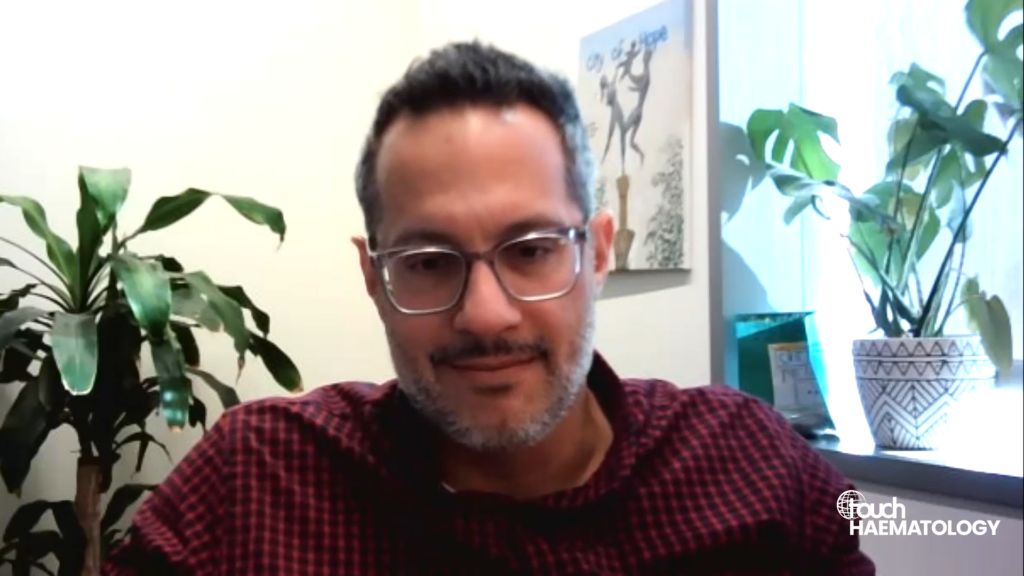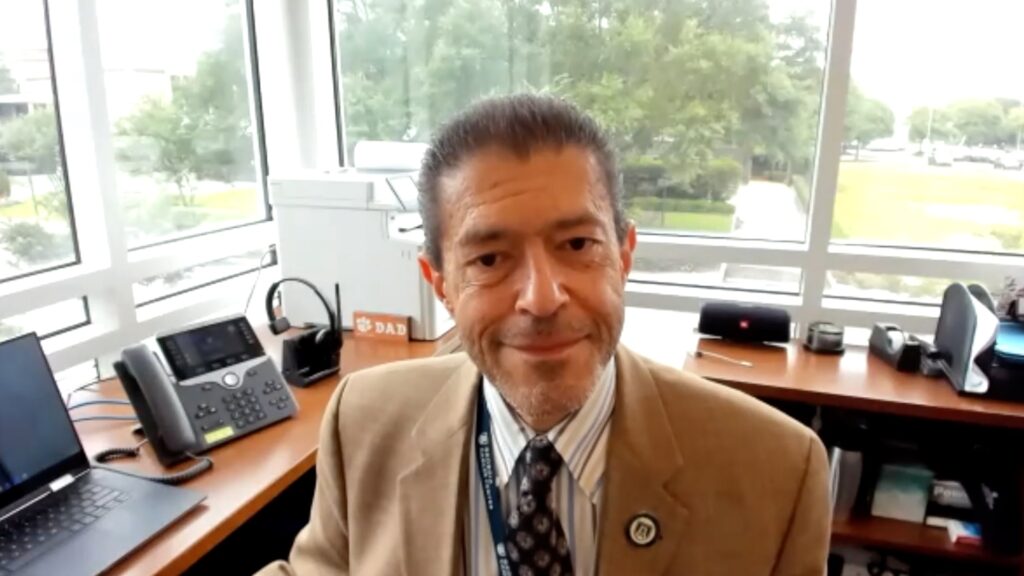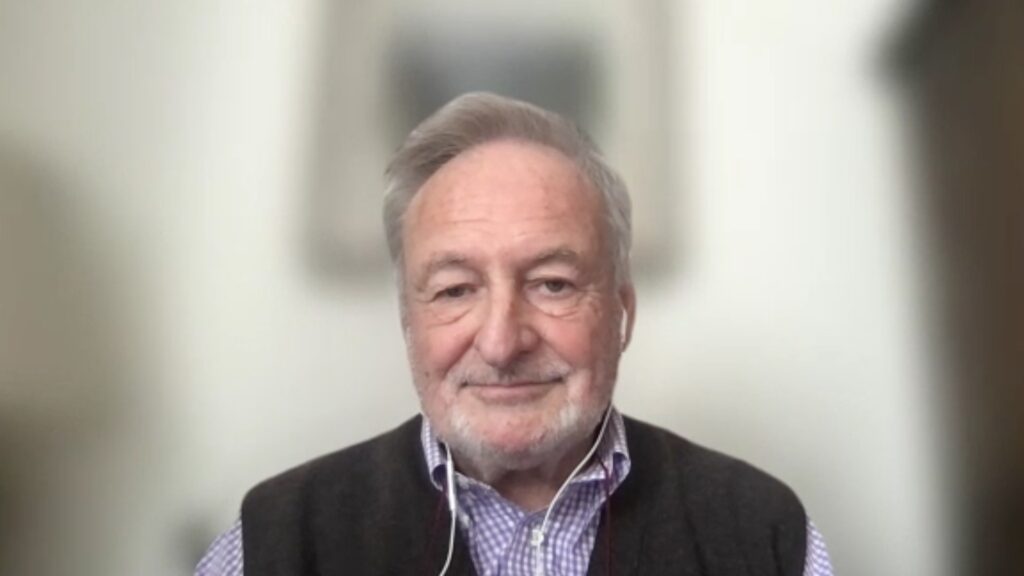
“These pivotal trials will help determine whether ziftomenib can truly change the standard of care”
At the 2025 European Hematology Association (EHA) Congress in Milan, emerging data reshaped conversations around treatment strategies for younger patients with acute myeloid leukemia (AML) receiving intensive chemotherapy. Dr Pinkal Desai (Associate Professor at Weill Cornell Medical College, New York, NY, USA) discusses two pivotal developments: the failure of KIT inhibition in core binding factor (CBF) AML, and promising early results for combining the menin inhibitor ziftomenib with intensive chemotherapy in NPM1-mutated or KMT2A-rearranged AML.
AMLSG 21-13: KIT inhibition falls short in CBF-AML
One long-standing question has been whether KIT mutations in CBF-AML could be effectively targeted with KIT inhibitors. At EHA 2025, this was addressed by Dr Hartmut Döhner, who presented findings from the AMLSG 21-13 phase III trial (abstract S149). The study evaluated the addition of dasatinib to intensive chemotherapy in patients with KIT-mutated CBF-AML.
The results were definitive: no improvement in event-free or overall survival with dasatinib. More troubling, the dasatinib arm showed increased toxicity, including colitis, acute kidney injury, atrial fibrillation and other serious adverse events.
While other KIT inhibitors could theoretically be explored, further trials are unlikely. As it stands, the standard of care remains intensive chemotherapy plus gemtuzumab ozogamicin.
KOMET-007: Ziftomenib shows early promise
By contrast, data on menin inhibition were far more encouraging. Dr Harry Erba presented early-phase results from the phase 1a/b KOMET-007 study evaluating ziftomenib combined with 7+3 chemotherapy in newly diagnosed AML with NPM1 mutations or KMT2A rearrangements (Abstract: S136). The trial enrolled 44 patients with NPM1-mutated AML and 27 with KMT2A rearrangements.
One major concern going into the study was the risk of additive toxicity. However, the safety profile proved manageable. There was just one case of grade 3 differentiation syndrome, which was successfully treated. Importantly, no delay in neutrophil or platelet recovery was observed with ziftomenib at 600 mg daily.
Ziftomenib’s efficacy was striking. The composite CR rate reached 93% in NPM1-mutated and 89% in KMT2A-rearranged AML. MRD-negative remissions were achieved in 68% and 83% of patients, respectively – many by week 4 or 5.
At a median follow-up of 25 weeks (NPM1) and 16 weeks (KMT2A), 96% and 88% of patients were still alive and on study. The median duration of CR hasn’t been reached for NPM1 patients, and stood at 25.6 weeks for those with KMT2A rearrangements.
These are substantial improvements. Historically, it’s been very difficult to achieve durable remissions in these subgroups with chemotherapy alone.
Ongoing trials
Several pivotal trials are now underway. The COMBINE-017 study (NCT04165317) is randomizing patients with NPM1- or KMT2A-mutated, FLT3-wild-type AML to receive ziftomenib or placebo alongside intensive chemotherapy. A separate trial is evaluating ziftomenib with azacitidine and venetoclax in the non-intensive setting. These trials will be critical to determine whether ziftomenib can truly shift the standard of care for these high-risk AML subsets.”
Browse all EHA2025 content here!
Disclosure: Pinkal Desai has received grant/research support from Kura Oncology, Janssen Research and BMS. She is a member of the Advisory Board for BMS, Kura Oncology, Syndax, Servier and Abbvie. She has received other financial or material support from Genentech/Roche.
Cite: #EHA25: Are menin inhibitors the next standard of care for high-risk AML?. touchHAEMATOLOGY. July 22nd, 2025
Interviewer/Editor: Sophie Nickelson
This content has been developed independently by Touch Medical Media for touchHAEMATOLOGY. It is not affiliated with the European Hematology Association (EHA). Views expressed are the speaker’s own and do not necessarily reflect the views of Touch Medical Media.
SIGN UP to touchHAEMATOLOGY!
Join our global community today for access to thousands of peer-reviewed articles, expert insights, and learn-on-the-go education across 150+ specialties, plus concise email updates and newsletters so you never miss out.











